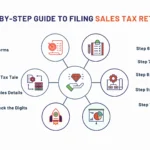Timeshare contracts can feel like an inescapable financial trap. What started as an exciting promise of affordable vacation getaways somehow morphs into mounting maintenance fees, frustrating booking restrictions, and limited availability that never seems to work with your schedule. If you’re nodding along right now, you’re not alone; thousands of timeshare owners find themselves in the same predicament, wondering how they ended up locked into agreements that no longer fit their lifestyle or budget. The good news? Several proven strategies exist that have helped countless owners successfully terminate their obligations.
Understanding Your Timeshare Contract Terms and Rescission Period
Here’s where things get interesting. Before you can plot your escape, you’ll need to become intimately familiar with the fine print you probably skimmed over during that high-pressure sales presentation. Your timeshare contract contains specific terms, conditions, and legal obligations that directly impact your exit strategy. The most crucial detail? Your rescission period, sometimes called the “cooling-off period,” typically runs anywhere from three to fifteen days depending on where you purchased. During this narrow window, you’ve got the legal right to cancel without penalty; no questions asked, just submit written notice to the developer before time runs out.
Working Directly with Your Timeshare Developer
Sometimes the most straightforward approach works best. Reaching out directly to your timeshare company to ask about deed-back or surrender programs might sound too easy, but many major developers have actually established official exit pathways in recent years. These programs typically come with strings attached; your maintenance fees need to be current, any mortgage must be paid off, and you’ll need to meet whatever eligibility criteria the company has set up. Now, developers aren’t legally required to take your timeshare back, so don’t expect them to roll out the welcome mat.
Selling Your Timeshare on the Secondary Market
Let’s talk about reality for a moment; the secondary timeshare market exists, but it’s nothing like selling traditional real estate. Timeshares depreciate faster than new cars, often reselling for a fraction of the original purchase price, and in many cases, owners are literally giving them away just to escape ongoing maintenance obligations. That said, legitimate resale platforms do exist, including licensed real estate brokers who specialize in timeshares, online marketplaces, and dedicated resale websites connecting buyers and sellers. The catch? You’ll need to approach this option with your eyes wide open about valuation and timing.
Engaging Professional Timeshare Exit Companies
Specialized timeshare exits companies have flooded the market, promising to help owners navigate complex cancellation processes, but separating legitimate firms from outright scams requires serious due diligence. For owners who need to evaluate their termination options professionally, understanding how to get out of a timeshare through legitimate channels requires working with experienced consultants who can assess individual circumstances. Reputable exit companies typically employ attorneys who specialize in timeshare contract law, reviewing your specific agreement for potential legal grounds like misrepresentation, fraud, or regulatory violations that occurred during the sales process. These professionals can negotiate with developers on your behalf, handle complex legal paperwork, and bring expertise that most individual owners simply don’t have when facing off against sophisticated timeshare corporations. Here’s the problem; the industry is absolutely crawling with fraudulent operators who collect substantial fees upfront and then disappear without delivering any results, leaving desperate owners in even worse financial shape than before. Before engaging any exit company, verify their credentials thoroughly, check their Better Business Bureau rating and online reviews, confirm they employ licensed attorneys, and make sure they offer money-back guarantees or escrow payment arrangements. Never, and we mean never, work with companies demanding full payment upfront, promising specific resolution timeframes, or advising you to stop paying maintenance fees before your contract is officially terminated. Quality exit services typically run several thousand dollars, but for owners with high-balance mortgages or crushing annual maintenance obligations, that investment might actually save money in the long run.
Exploring Legal Options and Consumer Protection Laws
Sometimes the law is on your side. In certain circumstances, legal action may provide solid grounds for canceling your timeshare contract, particularly if deceptive sales practices, blatant misrepresentation, or violations of consumer protection laws occurred during your purchase. Some states have enacted specific timeshare regulations that give consumers additional protections beyond standard contract law, and federal regulations like the Truth in Lending Act might apply depending on how your purchase was financed. Common legal arguments include claims that salespeople made false promises about rental income potential, unrealistic resale values, or exchange system flexibility that never actually materialized as represented.
Understanding the Financial Implications of Walking Away
Let’s address the elephant in the room; some timeshare owners seriously consider just walking away by stopping maintenance fee payments and letting the timeshare enter foreclosure. While this might sound tempting when you’re frustrated and financially stressed, this approach carries serious consequences that deserve careful consideration. Defaulting on your timeshare agreement typically triggers collection actions, damages your credit score, potentially results in lawsuits for unpaid fees, and might even lead to deficiency judgments if your contract includes recourse provisions. The credit impact can stick around for seven years, affecting your ability to obtain mortgages, car loans, or favorable interest rates on practically any financial product.
Conclusion
Breaking free from an unwanted timeshare contract isn’t going to happen overnight, but it’s absolutely achievable with patience, persistence, and a realistic understanding of your available options. Whether you pursue developer surrender programs, explore secondary market sales, engage professional exit assistance, or take legal action, success depends on thorough research, realistic expectations, and protecting yourself from the countless scams targeting vulnerable timeshare owners. The process can definitely be frustrating and time, consuming, there’s no sugarcoating that reality. However, thousands of owners successfully exit their timeshares every single year by following proven strategies and maintaining determination despite the obstacles they encounter.


